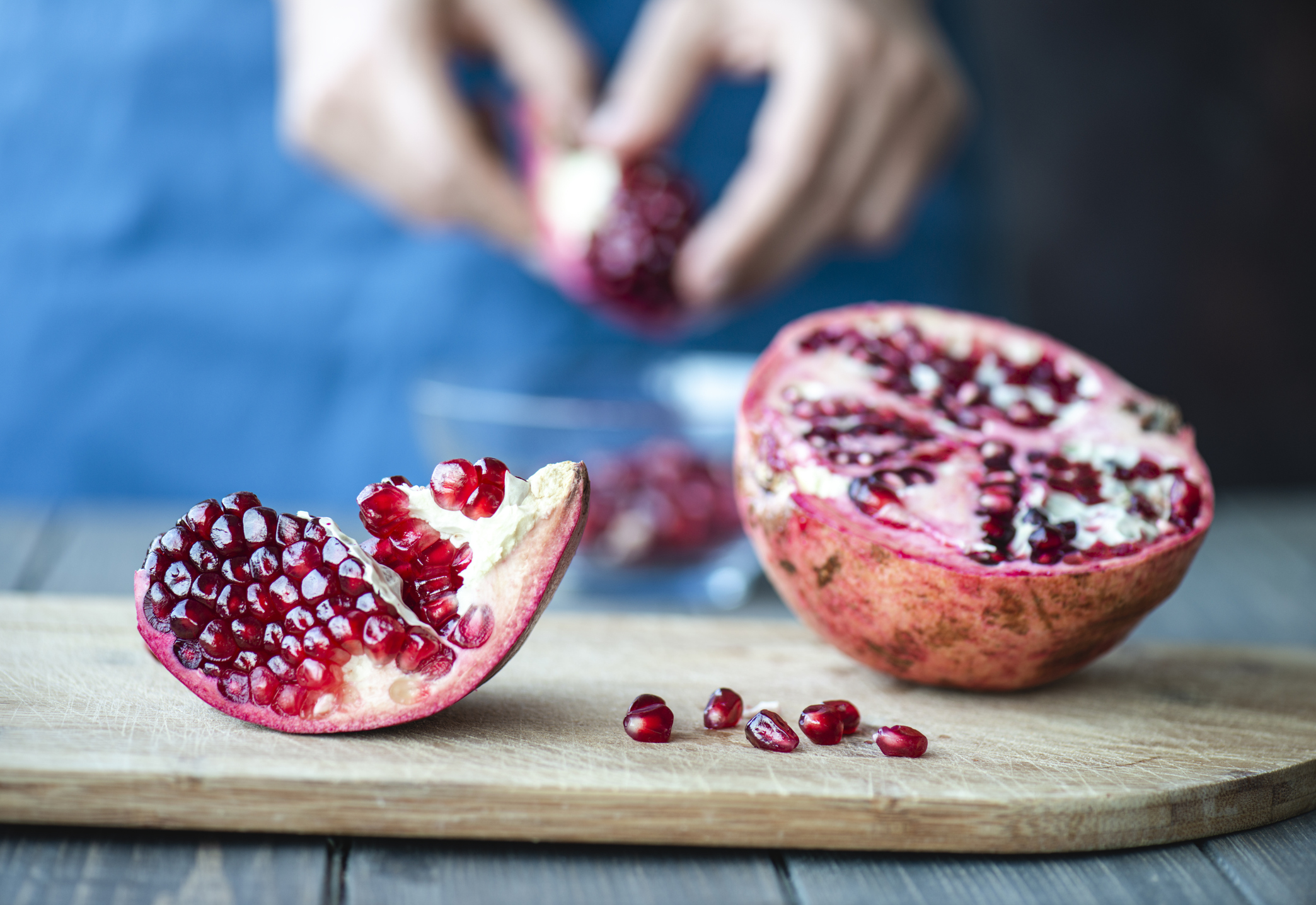Get Easy Health Digest™ in your inbox and don’t miss a thing when you subscribe today. Plus, get the free bonus report, Mother Nature’s Tips, Tricks and Remedies for Cholesterol, Blood Pressure & Blood Sugar as my way of saying welcome to the community!
The link between mitochondria, Alzheimer’s and pomegranates

If you’ve heard anything about Alzheimer’s, you’ve heard plenty about the amyloid beta and tau proteins responsible for the signature clumps, tangles and plaques of the disease.
So, it makes sense then that prevention research has focused on how to stop these proteins from doing their dirty work.
However, it seems all that research has been missing a step that scientists from the Buck Institute For Research on Aging say could be the elusive secret we’ve needed all along to “slow down or reverse these harmful effects, offering new ways to treat both aging and age-related diseases.”
Aging mitochondria lead to clumping proteins
While amyloid beta and tau have been the primary targets of Alzheimer’s research, the scientists knew that other insoluble proteins accumulate and clump together leading to a slew of neurodegenerative diseases.
But when amyloid beta is put in a test tube with any of those clump-forming proteins, the aggregation of amyloid accelerates dramatically.
“Based on our discoveries, targeting insoluble proteins could provide a strategy for the prevention and treatment of a variety of age-related diseases,” said Edward Anderton, PhD, a postdoctoral fellow and co-first author of the study.
It was a theory they decided to test out in the brains of worms and sure enough, it came down to this.
In older age, mitochondria (the powerhouses of your cells) start pumping out lower-quality proteins — ones that are prone to clumping.
And when those sticky proteins combine with amyloid, all bets are off and Alzheimer’s is on the table.
Reversing amyloid’s toxic impact
Now for the good news…
The researchers say there is a way to cut down on those low-quality proteins that accumulate with age.
“Since hundreds of mitochondrial proteins become insoluble both during aging and after expressing amyloid beta, we thought if we can boost the mitochondrial protein quality using a compound, then maybe we can reverse some of the negative effects of amyloid beta,” said Anderton.
And that’s exactly what they found in a natural metabolite that your gut makes after eating foods like pomegranates, raspberries and walnuts.
Known as Urolithin A, it’s already been shown in past studies:
- to act as a fountain of youth for stronger, younger muscles;
- to lower blood pressure like a medication;
- and, most importantly, to keep mitochondria in tip-top shape.
Now, The Buck Institute researchers add that Urolithin A significantly delayed the toxic effects of amyloid beta.
Boosting your mitochondrial health
The take away according to the researchers is that the health of your mitochondria is critical to healthy aging.
“Mitochondria have a strong link with aging. They’ve got a strong link with amyloid beta,” said Anderton. “I think ours is one of the few studies that shows that insolubility and aggregation of those proteins might be the link between the two.”
And according to Buck Professor Gordon Lithgow. PhD, Vice President of Academic Affairs and the senior author of the study, “Because the mitochondria are so central to all of this, one way to break the vicious cycle of decline is to replace damaged mitochondria with new mitochondria.”
“And how do you do that?” he says, “You exercise and follow a healthy diet.”
In addition to boosting Urolithin A through diet, you can also eat foods that contain pyrroloquinoline quinone (PQQ), like kiwi, green peppers, parsley, papaya, spinach and celery.
Many studies demonstrate that PQQ not only improves mitochondrial function but also stimulates mitochondrial biogenesis. That means it may help an aging body improve its waning production of mitochondria.
As far as Prof. Lithgow’s exercise advice goes, all it takes to get younger, healthier cells is two minutes a day.
Editor’s note: Did you know that when you take your body from acid to alkaline you can boost your energy, lose weight, soothe digestion, avoid illness and achieve wellness? Click here to discover The Alkaline Secret to Ultimate Vitality and revive your life today!
Sources:
The vicious cycle of protein clumping in Alzheimer’s disease and normal aging – EurekAlert!














